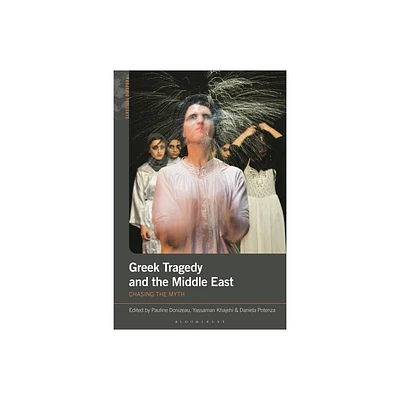Home
Objects as Actors: Props and the Poetics of Performance Greek Tragedy
Loading Inventory...
Barnes and Noble
Objects as Actors: Props and the Poetics of Performance Greek Tragedy
Current price: $59.00


Barnes and Noble
Objects as Actors: Props and the Poetics of Performance Greek Tragedy
Current price: $59.00
Loading Inventory...
Size: Hardcover
*Product Information may vary - to confirm product availability, pricing, and additional information please contact Barnes and Noble
Objects as Actors
charts a new approach to Greek tragedy based on an obvious, yet often overlooked, fact: Greek tragedy was meant to be performed. As plays, the works were incomplete without physical itemstheatrical props. In this book, Melissa Mueller ingeniously demonstrates the importance of objects in the staging and reception of Athenian tragedy. As Mueller shows, props such as weapons, textiles, and even letters were often fully integrated into a play’s action. They could provoke surprising plot turns, elicit bold viewer reactions, and provide some of tragedy’s most thrilling moments. Whether the sword of Sophocles’s
Ajax
, the tapestry in Aeschylus’s
Agamemnon
, or the tablet of Euripides’s
Hippolytus
, props demanded attention as a means of unitingor disruptingtime, space, and genre. Insightful and original,
offers a fresh perspective on the central tragic textsand encourages us to rethink ancient theater as a whole.
charts a new approach to Greek tragedy based on an obvious, yet often overlooked, fact: Greek tragedy was meant to be performed. As plays, the works were incomplete without physical itemstheatrical props. In this book, Melissa Mueller ingeniously demonstrates the importance of objects in the staging and reception of Athenian tragedy. As Mueller shows, props such as weapons, textiles, and even letters were often fully integrated into a play’s action. They could provoke surprising plot turns, elicit bold viewer reactions, and provide some of tragedy’s most thrilling moments. Whether the sword of Sophocles’s
Ajax
, the tapestry in Aeschylus’s
Agamemnon
, or the tablet of Euripides’s
Hippolytus
, props demanded attention as a means of unitingor disruptingtime, space, and genre. Insightful and original,
offers a fresh perspective on the central tragic textsand encourages us to rethink ancient theater as a whole.


















